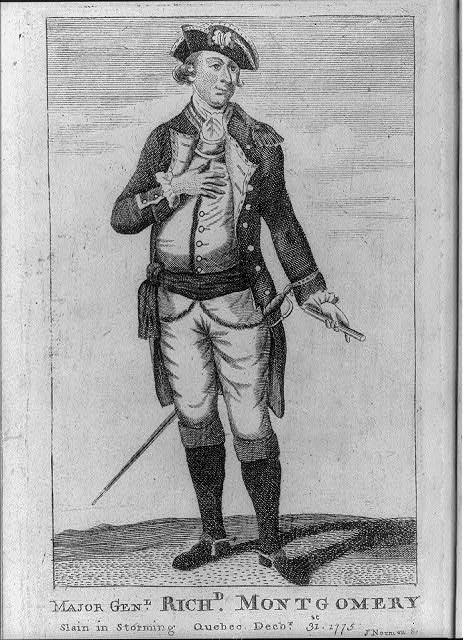Dec. 31, 1775: As the first year of the American Revolution draws to a close, American Revolutionary forces led by Col. Benedict Arnold and Maj. Gen. Richard Montgomery attack the British fortress at Quebec City while a snowstorm rages. The assault fails.

Arnold, who led his men on an epic, hardship-filled journey up Maine’s Kennebec River and through the wilderness of northwestern Maine and the countryside of what is now southeastern Quebec to reach the fortress, is wounded.
Montgomery, whose forces descended the St. Lawrence River valley to join Arnold after having occupied Montreal, is killed in combat.
Dec. 31, 1793: Only 15 District of Maine towns send delegates to a convention at the courthouse in Portland to discuss the prospect of separation from Massachusetts. Two entire counties – Hancock and Washington – send none at all.
The convention delegates propose that Maine’s other three counties separate and that Hancock and Washington remain part of Massachusetts. They schedule another meeting for the following June 18.
The pro-separation forces have been pursuing their goal since 1785 and have faced many obstacles, including resistance from Maine business interests and coastal residents. They probably have no inkling that it will take another 27 years to achieve separation.
Maine finally becomes a state on March 15, 1820 – 200 years ago this year.

President Nixon signs the Clean Air Act as the first Environmental Protection Agency Administrator William Ruckelshaus and Council on Environmental Quality Chairman Russell Train look on. Image courtesy of the Richard Nixon Presidential Library & Museum
Dec. 31, 1970: President Richard Nixon signs the Clean Air Act, a compromise billion-dollar air-quality law that was shepherded through Congress by U.S. Sen. Edmund Muskie, D-Maine.
The Environmental Protection Agency estimates that the law prevents more that 200,000 premature deaths and 700,000 cases of chronic bronchitis in the 20 years after its passage. From 1990 to 2010, according to the agency, total emissions of the six primary air pollutants decrease more than 41 percent, even while the Gross Domestic Product increases 64 percent.
Muskie, who was a Waterville lawyer before entering politics, already had been instrumental in obtaining passage of the Clean Air Act of 1963 and the Water Quality Act of 1965 when he took on the 1970 challenge, establishing his credentials as a protector of the environment. The 1970 law – along with its subsequent amendments – is far more transformative. While focusing on reducing pollutants emitted by automobiles, it also deals with the entire spectrum of air pollution.
The law requires the establishment of EPA pollution standards; mandates that states set up their own implementation plans, which may be more stringent than the federal minimums; and sets the requirements for all new factories and federal facilities to control pollution.
Joseph Owen is an author, retired newspaper editor and board member of the Kennebec Historical Society. Owen’s book, “This Day in Maine,” can be ordered at islandportpress.com. To get a signed copy use promo code signedbyjoe at checkout. Joe can be contacted at: jowen@mainetoday.com.
Send questions/comments to the editors.



Comments are no longer available on this story